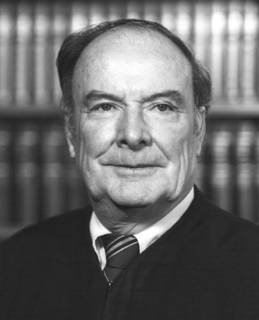Linkovi
- East Ethnia
- Yakima Gulag
- Burek Eaters
- Estavisti
- An American in Belgrade
- Sarajevo Photoblog
- Balkan Baby
- Belgrade Blog
- The Glory of Carniola
- One small lawyer's big adventure
- Finding Karadžić
- Americans for Bosnia
- Bosnia Vault
- Jugoslavija Druga
- Friends of Bosnia - Seattle
- Sam Thought (inactive)
- Mladi Behar - Boise, Idaho
- FK Srebrenica - Boise, Idaho
- Research and Documentation Center - Sarajevo
- Balkan Immigration in Washington
- Vela Luka Croatian Dance Ensemble
- Balkanarama
- Balkan Cabaret
Arkhiv
Potato i Jedinstvo
Thursday, April 27, 2006
Map: B/H/S in the USA
 This is pretty cool: the MLA Language Map of the United States.
This is pretty cool: the MLA Language Map of the United States.If you click through to the map, you can find counties in the U.S. where significant numbers of people speak the jezik formerly known as "Serbo-Croatian." (that's what they still call it on the maps. No, I'm not going to tell them, you tell them.)
The neat thing to me is seeing Twin Falls County, Idaho, making a very respectable showing, with a comparatively high percentage of speakers, particularly for the Western states. You can also zoom in by zip codes to see the splash of color that is the city of Twin Falls, with more speakers than all but four zip code areas in the Northwest (Richland and south King County). Idemo, Idaho!
Saturday, April 15, 2006
Bosnian - Idahoan: "I came from war"
 Here's an interesting angle on this country's current furore over immigration: Cassidy Friedman, a reporter from the Twin Falls, Idaho Times-News, spent some time in the local caffe-bar and asked some immigrants from the former Yugoslavia what they thought:
Here's an interesting angle on this country's current furore over immigration: Cassidy Friedman, a reporter from the Twin Falls, Idaho Times-News, spent some time in the local caffe-bar and asked some immigrants from the former Yugoslavia what they thought: Skepticism and cigarettes - Immigration rights is hot topic at Euro Store
Chain-smoking, laughing caustically and twitching from espresso, the Euro Store regulars talk with mixed emotions about expanding the rights of illegal immigrants.
The issue draws from them both sympathy and bitterness.
Bitterness, because what principle justifies making them and other refugees wait in line, while granting unconditional amnesty to illegal aliens?
And sympathy, because they too would seize the opportunity to enter the U.S. illegally if it meant greater opportunity for their family.
"I would do it, too, for survival," said Narcis Kurbegović, formerly a Bosnian refugee who now owns Euro Store, an eastern European cafe bar on Hansen Street East. Others nodded in agreement.
"If you see a bigger opportunity for your family, of course it makes sense," he said, about people who work illegally in the U.S. But whether it should be legal is another question.
Mirzo Ramović, a custodian at Twin Falls High School, legally obtained refuge in the U.S. after the war.
"This is a big problem," he said. "I'm 50-50. Build a wall. We need more security" on one hand, but "if they don't have a home in Mexico, (they) need a license to stay and work."
The room stirs when Kurbegović contrasts the illegal Mexican immigrant's plight with that of the political refugee. "The difference between those guys and me," said Kurbegović. "I came from war. They came from a free country."
"I would never have come here if I didn't have war in my country," he said.
But the economy in Bosnia before the war offered more opportunity than in Mexico.
"Every guy here," he said to the room. "His paycheck was bigger before the war in my country than it is now."
At present, 600 Bosnian refugees live in Twin Falls; there are at least 150 (Meskhetian) Turks; some Cambodians and some Laotians, according to the College of Southern Idaho Refugee Center...
Thursday, April 13, 2006
Fun fact about Twin Falls, ID
From the Times-News:
In addition to Hispanics, the county includes people from other cultures such as Bosnians, Croatians and Russians. The Twin Falls School District estimates that its students speak 27 languages...
Twin Falls County is no metropolis, but it's also not the sleepy, agricultural community it used to be.
And for the better, hvala puno.
In addition to Hispanics, the county includes people from other cultures such as Bosnians, Croatians and Russians. The Twin Falls School District estimates that its students speak 27 languages...
Twin Falls County is no metropolis, but it's also not the sleepy, agricultural community it used to be.
And for the better, hvala puno.






